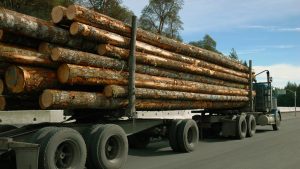U.S. softwood lumber duties haven’t even gone into effect, but according to the Greater Vancouver Home Builders’ Association they are already impacting home prices.
"Although on the surface of it this wouldn’t seem like it should affect Canadian prices — it really has in the recent quarter and may continue to have an effect going forward," said Bob de Wit, CEO of the association.
"What we’ve seen in the last quarter are distributors and mills ‘hoarding’ supply on the U.S. side, in anticipation of the tariff, as well as Canadian sellers increasing prices — anticipating the retroactive nature of the tariff — ahead of the announcement, with the effect adding up to roughly $5,000 per door extra lumber costs for a new single family home in B.C."
De Wit added that going forward it’s not clear how the tariff will impact domestic lumber prices. He said that depending on the elasticity of U.S. demand to these increased prices, domestic prices could rise or fall.
"The only thing we know for sure is that U.S. homebuyers and homebuilders will be paying more for lumber," he said.
The U.S. Department of Commerce announced that preliminary countervailing duties of up to 24 per cent will be applied to the majority of Canadian softwood lumber shipments entering the U.S. starting next month.
The Department of Commerce argues that the countervailing duty is required to offset what in its view is unfair subsidies that Canadian and provincial governments allegedly provide to lumber companies.
Canadian government officials firmly denounced the duties.
"The Government of Canada disagrees strongly with the U.S. Department of Commerce’s decision to impose an unfair and punitive duty. The accusations are baseless and unfounded," said Jim Carr, minister of natural resources and Chrystia Freeland, minister of foreign affairs, in a joint statement.
"This decision will negatively affect workers on both sides of the border and will ultimately increase costs for American families who want to build or renovate homes."
The U.S. National Association of Home Builders has calculated that a $1,000 increase in the cost of a new house would put home ownership beyond the reach of more than 150,000 American families and jeopardize thousands of jobs in the American home construction industry, the statement reads.
The two ministers added the country is prepared to fight the duties using litigation and that in ruling after ruling since 1983, international tribunals have disproved the unfounded subsidy and injury allegations from the U.S. industry.
"We have prevailed in the past and we will do so again," they said.
Forestry is one of B.C.’s founding industries and a key driver of B.C.’s economy. In 2016, the industry accounted for $14 billion in exports — 35 per cent of the value of all B.C. goods exported. Forestry directly employs more than 60,000 people in over 140 communities around the province. In 2015–16, direct forestry revenues to the provincial government were $833 million.
According to the Canadian Home Builders’ Association (CHBA), with the duties now in place, prices in Canada should retreat somewhat as supply builds and perhaps is even stockpiled, though the actual amounts are uncertain.
"Over the longer term, however, the duties could mean the shutdown of smaller operators," reads a statement from the CHBA to its members. "If this happens, then overall industry capacity could be diminished. When the dispute is resolved, lower capacity would result in higher demand and prices for Canadian lumber on both sides of the border, if supply capacity has been reduced."
The CHBA is also concerned about the impact this tariff regime will have on regional economies that rely on softwood lumber production for jobs. As was experienced during the drywall issue, larger firms are more able to weather the impact of trade disputes on price and supply.
Unifor (the forestry workers union) anticipates that the U.S. tariffs could affect up to 25,000 jobs, including 10,000 direct jobs and 15,000 indirect ones.
B.C. Premier Christy Clark, who is the midst of campaigning for the upcoming provincial election, released a statement promising the B.C. government will combat "unfounded" claims made by the American lumber production lobby and work to reach a fair deal with the U.S.
She says she will meet with her cabinet to discuss the developments and determine "further actions to stand up for B.C. workers" and the forestry industry.
Clark says the province has already started to diversify its lumber export markets, with the U.S. accounting for 59 per cent of softwood exports in 2015, down from 82 per cent in 2001.
The BC Lumber Trade Council is also unhappy with the duties, saying in a statement that they are "completely without merit."
Carr and Freeland explained that they are committed to working with the U.S. Administration to achieve a durable solution.











Recent Comments
comments for this post are closed